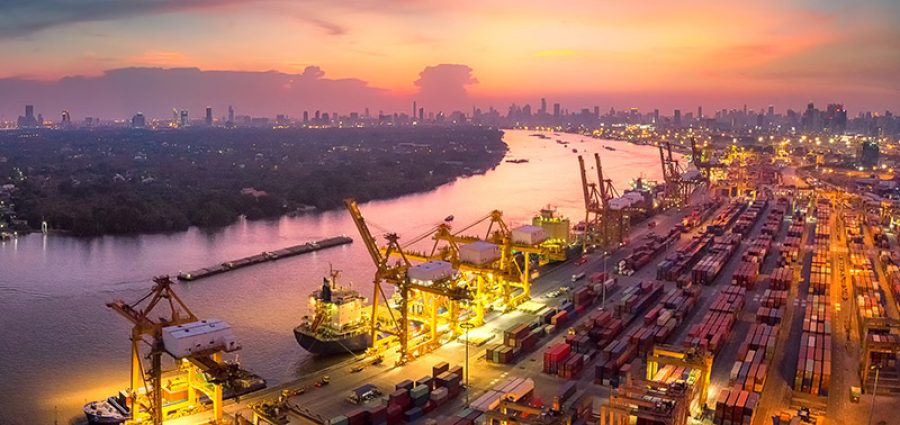As the conflict between Israel and Hamas continues in the Middle East, companies may be wondering how the violence could disrupt freight schedules and supply chain logistics in the region and across the world.
Some global companies already are rethinking their supply chains in an effort to avoid potential dangers caused by the deadly conflict, according to a report from logistics and supply chain media outlet DC Velocity. And while the violence hasn’t yet hamstrung vital international trade routes, it has triggered cancellations and delays of some air and ocean cargo routes.
Global shipping companies FedEx and UPS recently announced they were suspending certain freighter flights to Israel, joining a litany of airlines that have also reduced service to the region. DC Velocity also reported that companies who continue to ship goods to Israel could face exorbitant insurance costs, including potentially tens of thousands of dollars in premiums and other additional costs.
The county’s main manufacturing and production sectors — namely medical devices, pharmaceuticals and chemical suppliers — also have ceased due to Israeli forces maintaining a closed military zone, according to the report. Israel’s high-tech exports to China — as well as its exports to the U.S., Turkey, Germany, Italy and India — also could be delayed in the coming weeks.
Israel is one of the few locations outside of East Asia where advanced chip production occurs, according to Bloomberg, and the country is home to many electronics and semiconductor companies and facilities. In 2015, Israel spent 4.3% of its GDP on “civil research and development,” the highest ratio in the world, according to electronic purchasing news outlet EPS News.
The conflict could disrupt supply chains for medical technology production as well. According to Medical Device & Diagnostic Industry, medtech companies in the region “must contend with potential manufacturing disruptions amid attacks, short-term diverted resources if the conflict expands — like medtech company staff being recalled as military reservists — and the potential blockades of sea-focused shipping lanes.”
Violence in the region also could have profound negative effects on an already struggling global economy. Countries continue to struggle with post-pandemic inflation, as well as effects of another conflict between Ukraine and Russia that has reached nearly 600 days. Oct. 10, the International Monetary Fund warned that the global economic recovery is slowing, with the fresh warring in the Middle East threatening to upend an economy that has struggled with myriad crises over the past three years.
“Economies are at a delicate state,” Ajay Banga, the World Bank President, recently told The New York Times. “Having war is really not helpful for central banks who are finally trying to find their way to a soft landing.”
For now, the Israeli-Hamas conflict hasn’t radiated negative economic conditions on the same scale as Russia-Ukraine, but that could change if the latest conflict spreads, Banga told The Times.
Related Posts
-
A national freight office would help guide federal decision-making in supply chain competitiveness, security, and…
-
Chicago-based personal protective equipment maker SureWerx named Eric Fouts as their Vice President of Global…
-
Tompkins Solutions named Jason Kowalskie Vice President of Sales to identify ways clients can improve…






